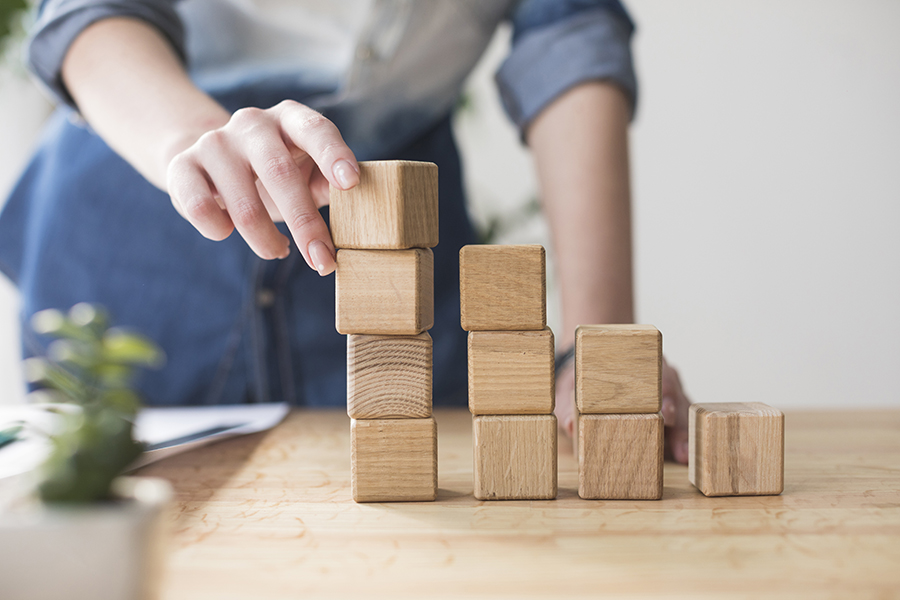We are living through twin epidemics—one physical and one emotional. COVID-19 has unleashed unprecedented fear, causing the public reaction to swing wildly between panicked toilet-paper stockpiling and laissez-faire Netflix binging. This recent public health twist comes on the heels 2019, a year when Gallup found that global fear and anxiety had reached an all-time high. The word “coronavirus” may now be the most searched-for term in all of Google history, as unprecedented announcements seem to hit the news hour by hour.

Our world is literally changing before our eyes, and it’s hard to understand the implications and impacts of these seismic shifts on our culture and way of life. What will travel look like in the future? What will happen to the markets? Will work ever be the same? Fear abounds, along with overwhelm and anxiety, which is natural—but to thrive and not just survive this unique time in history, it is imperative that we tap into our deep reserves of optimism.
Fostering a positive mindset in the midst of a challenging situation does not mean ignoring risks, dangers, and concerns; rather it means leaning into mental agility, knowing that the human brain receives 11 million bits of information every single second, but can only process 50 bits at any given time. Allowing our brains to perseverate on the stresses, hassles, and complaints in our environment decreases the capacity for our brains to seek out other salient, equally true, and potentially more useful information. Being able to see and lean into the positive information in our environment has been linked with three times the levels of creativity, 31% more productivity, and 23% less stress, attributes that we as a world desperately need at this time.
To embrace fearless positivity in the midst of uncertainty, try these four strategies:
1. Reframe the situation.
Change in our routine can be a source of major stress, but it can also be a catalyst for new positive habits. We’ve already seen how public hygiene habits have improved worldwide, how families are spending more quality time together, how distance education is rapidly making learning more accessible, and how global empathy and cooperation is higher than it’s ever been in our lifetime. As trend forecaster Li Edelkoort states in a profound interview with De Zeen, “the coronavirus offers a blank page for a new beginning.” We have an opportunity now to rapidly shift away from vapid consumption to double down on mindfulness and connection. This is our moment…what will we do with it?
2. Rethink stressors.
Research shows that when we think about stressors as a challenge rather than a threat, our minds use a different region of the brain to process the information. Although our default reaction is fight or flight (which draws on the emotion-regulating parts of the brain), we can actively re-route our neural pathways to our logic centers in the pre-frontal cortex by thinking of one simple, microbehavior to try in the midst of stress. For instance, when you wake up in the morning, challenge yourself to take one minute to meditate before reading the news. Not only will your body feel less stress, but your mind will be able to focus in on the most important information to move forward with. Another idea is to think of one gratitude every time you wash or sanitize your hands.
3. Reconnect with colleagues and loved ones.
Rather than social distancing, try physical distancing. We live in an era where digital connectivity is absolutely possible and can provide an emotional boost during this tumultuous time. Rather than waiting for others to provide emotional support for you, try reaching out to others to check in or offer a word of encouragement. Those who offer social support to others are 40% more likely to receive it in reutrn. However research shows that You can also chat virtually with one friend or a group of friends using Facetime, Marco Polo, or House Party.
4. Renew your mind regularly.
Stressful situations require more time and attention for self-care. As Positive Medicine expert Doctor Bobo explains, “there is no happy without being healthy.” Eating well, exercising, journaling, and saying gratitudes are crucial anchors for mindsest in the midst of stress. To tune into your own body, try a body scan meditation to acknowledge where you might be holding tension and to actively relax those muscles.
Staying positive in the midst of uncertainty can be a challenge, but these four strategies are skills that you can practice and get better at. By understanding the brain science of mindfulness and investing even a few minutes into grounding our mindset, we can tap into our full potential, unleashing our creativity and resilience to get through this global crisis together.